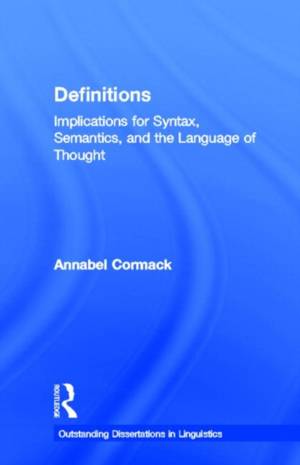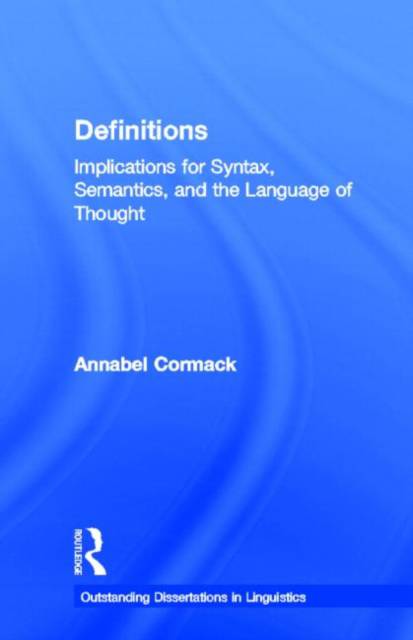
- Afhalen na 1 uur in een winkel met voorraad
- Gratis thuislevering in België
- Ruim aanbod met 7 miljoen producten
- Afhalen na 1 uur in een winkel met voorraad
- Gratis thuislevering in België
- Ruim aanbod met 7 miljoen producten
Omschrijving
The answer to the question "How can we understand and use a definition?" provides new constraints on natural language and on the internal language in which meaning is mentally represented. Most syntax takes the sentence as the basic unit for well-formedness, but definitions force us to focus on words and phrases, and hence to focus on compositional syntax in parallel with compositional semantics. This study examines both dictionary definitions and definitions from textbooks, from the points of view of their syntax, semantics, and use for learning word meaning. The tools used throughout are Principles and Parameters syntax, Relevance theoretic pragmatics, Model theoretic semantics, and the formal theory of definitions.
The analyses argue that because phrases can be understood in isolation, some standard syntactic analyses must be modified. 'NP movement' has to be reanalysed as transmission of theta roles. These ideas are then applied to a variety of adjectives which take propositional complements. The final chapter argues that for definitions to be understood, the syntax of the Language of Thought must be close to that of Natural Language in specifiable way.
Specificaties
Betrokkenen
- Auteur(s):
- Uitgeverij:
Inhoud
- Aantal bladzijden:
- 374
- Taal:
- Engels
- Reeks:
Eigenschappen
- Productcode (EAN):
- 9780815331315
- Verschijningsdatum:
- 1/08/1998
- Uitvoering:
- Hardcover
- Formaat:
- Genaaid
- Afmetingen:
- 148 mm x 224 mm
- Gewicht:
- 594 g

Alleen bij Standaard Boekhandel
Beoordelingen
We publiceren alleen reviews die voldoen aan de voorwaarden voor reviews. Bekijk onze voorwaarden voor reviews.












